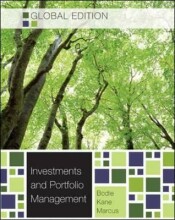Asset classes and financial instruments - The bond market
11 important questions on Asset classes and financial instruments - The bond market
What are treasury notes and bonds?
What are inflation protected treasury bonds?
What is federal agency debt?
- Higher grades + faster learning
- Never study anything twice
- 100% sure, 100% understanding
What is a Eurodollar bond, Euroyen bond, Yankee bond and Samurai bond?
A Yankee bond is a dollar-denominated bond sold in the United States by a non-U.S. issuer. Similarly, Samurai bonds are yen-denominated bonds sold in Japan by non-Japanese issuers.
What are municipal bonds?
What are revenue bonds?
Revenue bonds are issued to finance particular projects and are backed either by the revenues from that project or by the particular municipal agency operating the project.
What are industrial development bonds?
What is the equivalent taxable yield?
What types of corporate bonds are there?
- secured bonds, which have specific collateral backing them in the event of firm bankruptcy;
- unsecured bonds, called debentures, which have no collateral; and subordinated debentures, which have a lower priority claim to the firm’s assets in the event of bankruptcy.
- Callable bonds give the firm the option to repurchase the bond from the holder at a stipulated call price.
- Convertible bonds give the bondholder the option to convert each bond into a stipulated number of shares of stock.
What are mortgage backed securities?
A mortgage-backed security is either an ownership claim in a pool of mortgages or an obligation that is secured by such a pool.
What is the difference between conforming mortgages and subprime mortgages?
Subprime mortgages, that is, riskier loans made to financially weaker borrowers, were bundled and sold by “private- label” issuers.
The question on the page originate from the summary of the following study material:
- A unique study and practice tool
- Never study anything twice again
- Get the grades you hope for
- 100% sure, 100% understanding





























